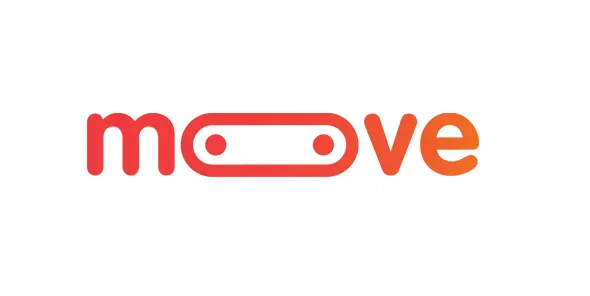Sale ends in
Days
Hours
Minutes
Seconds
Sale ends in
Days
Hours
Minutes
Seconds
-
HRTimesheetLearning Management System
UAE is the ultimate destination for big business houses, corporations, MNCs and startups to set up their establishments. It has an environment that attracts investments and trade from all around the world.
To attract such global businesses, UAE offers several deals. The country also offers legal support to business owners along with world-class technology. Talking beyond businesses and trading units, UAE attracts a large number of young talents too.
Before undertaking anything about the best practices to follow while hiring employees in the UAE, let’s understand “Why Dubai is an attractive destination for job seekers?”
“Acquiring the right talent is the most important key to growth. Hiring was — and still is — the most important thing we do.”
– Marc Benioff Tweet

Here are the key pointers that makes the UAE an attractive destination for job seekers:
1. Competitive Salaries
UAE offers competitive salaries to employees. According to a report, Dubai offers 10% more salaries than the United Kingdom and United States of America. Apart from the competitive salaries UAE also offers additional benefits such as allowances and perks. High salary is one of the key pointers that attracts job seekers from all around the world.
2. Great Work Culture
The work culture offered to the employees in organizations in the UAE is comparatively better as compared to other countries. Dubai is known for its modern infrastructure and technological developments.
3. Ease in Taxation Policy
UAE has a very easy taxation policy for earning individuals. The government of UAE doesn’t collect any money as tax on the personal income of individuals. No tax policy attracts several job seekers in the UAE.
4. Additional Employee Benefits
Along with the competitive salary trends, UAE also offers additional benefits to the employees such as maternity leave, paternity leave, earned leave, casual leave, annual leave, etc.

Organizations and employers in the UAE provide several benefits to employees. Here are numerous benefits provided by the employers in UAE to their employees:
In UAE, it’s necessary for employers to provide certain benefits to their employees. These benefits are referred to as mandatory benefits. Mandatory benefits include certain benefits such as:
Along with the mandatory benefits employers also provide supplementary benefits. These additional benefits are provided to employees to stay competitive in the industry and acquire the best talent for their organizations. An organization can provide various additional benefits to its employees such as:

In UAE employees are entitled to various types of leaves. Here are some of the leaves provided to employees in the organization:
Employers in UAE can avail sick leave if they are sick or suffering from any kind of injury. It is necessary to report the employer about their sick leave within a maximum of two days. In UAE employers get full pay for the first 15 days and partial pay for the next 15 days and after that all sick leave is unpaid in a particular year. Employees are also required to submit a medical certificate to their employers as proof.
Maternity leaves are provided to female employees upon giving birth to a child. Let’s understand the maternity leave rules for female employees in the UAE. This leave is applicable for 50 days.
Employees are paid in full for the first 45 days and paid half for the next 15 days. Female employees can also avail the maternity leave if they miscarry the baby after six months of pregnancy and the same leave rule will be applicable.
Paternity leaves are provided to male employees to look after their newborn child. No paternity leave is provided to male employees under New Labour Law.
Employers in UAE provide two days leave for every month they work if they service the organization for more than six months. If their service exceeds one year they are entitled to 30 paid annual leaves.
Employees who are associated with a company for more than 2 years are entitled to 10 study leaves per year to sit in their examinations. Educational institutions must be associated with the UAE government.
These leaves are provided in case of death of a near or dear one.
Trusted by Leaders in Every Industry to Optimize HR, Automate Processes, and Maximize Efficiency.

It is crucial to understand the labour laws in UAE for both employers and employees. UAE Labour Law has evolved in recent years due to the changing needs of the workforce. Let’s understand the labour laws in UAE with certain key pointers:
The Ministry of Human Resource and Emiratisation (MoHRE) regulates labour affairs and governs employers in the UAE. It is responsible for regulating and implementing the labour laws in the whole country.
The working hours of employees in UAE is 48 hours per week which means 8 hours per day. Beyond standard working hours, employees are paid overtime for working more than standard hours. Know the overtime calculation in UAE.
Employers are responsible for providing a safe and healthy work culture to their employees at the workplace. Safety standards and protocols should be followed to ensure that employees are healthy and safe at the workplace.
Employers are obliged to pay timely wages to their employees. There are no such minimum wages but MoHRE has certain laws and regulations to ensure that employees are paid fairly by their employers.

Recruitment is one of the major costs of any business or organization. The cost of hiring an employee not only includes the cost of providing them salaries and payouts but it involves several direct and indirect costs as well. Some of the major elements included in cost of hiring an employee are:
It is the total of the cost involved in the hiring process including, job posting, advertising, interviewing and candidate screening. Nowadays organizations make use of various software such as Applicant Tracking System (ATS) or Recruitment Software. This software helps in automating interview scheduling, resume screening etc. The subscription cost is also included in the hiring cost.
It refers to the cost incurred on providing necessary training sessions to the employees. Training is essential to make the employees well-versed on their work and to familiarize them with various procedures.
Organizations have to pay monthly salaries or wages to the employees.

Organizations use various sources to hire candidates in the United Arab Emirates:
Employers can hire candidates through various job portals such as Linkedin, GulfTalent, MonsterGulf etc. These job portals help employers to reach the potential candidates. These job portals provide a large database of candidates to select potential candidates. Explore the Top Job Portals in UAE.
Employers can hire employees by attracting candidates through social media channels such as Linkedin. It is a useful tool that helps candidates in job posting and hiring.
ATS stands for Applicant Tracking System. It is an application software designed to make the recruitment process hassle-free and easy. It helps to streamline a number of manual processes such as resume parsing, interview scheduling, candidate tracking and candidate management. HR professionals, employers or hiring managers can make use of ATS Software to track the entire hiring process.
















